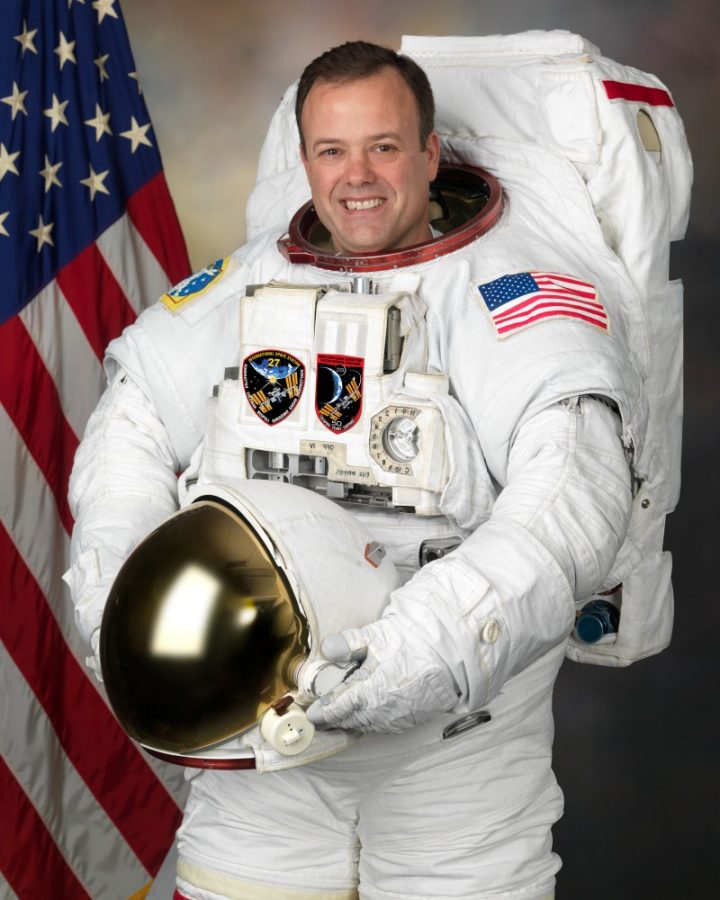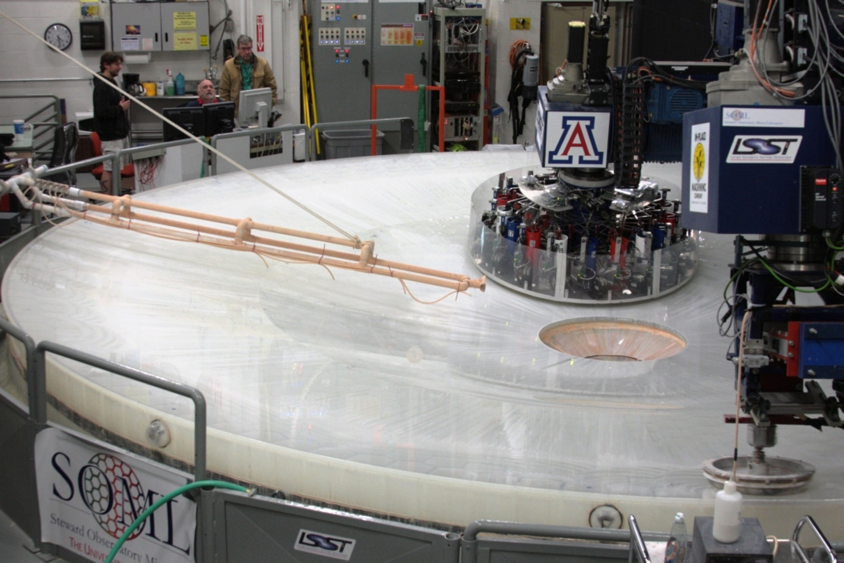A new online UA science course gives students the opportunity to learn about Earth from the perspective of astronaut Ron Garan.
“I hope students get a very broadened view of the world that we live in, that their universe expands and that their definition of the word ‘home,’ expands to encompass the entire planet,” said Garan, chief pilot for World View Enterprises and former NASA astronaut.
The course, which is titled “Introduction to the Orbital Perspective,” encompasses all aspects of science, including astronomy, physics, geoscience, ecology and atmospheric science, according to Thomas Fleming, astronomer at the Steward Observatory and senior lecturer in the Department of Astronomy. Fleming coordinates UA’s general education astronomy courses.
“This is one of those classes where students can see the scientific method at work in all areas of science and it’s about the planet they live on,” Fleming said. “[Students] can get an appreciation of what we know about how our ecosystem works and how the earth operates, and how we fit into it.”
Besides the fact that you’ll be able to say you took a class from an astronaut, Fleming added that students have the opportunity to learn about their planet through the eyes of someone who’s observed it from space.
RELATED: UA experts weigh-in on NASA’s EM Drive
Garan’s combined 178 days in space certainly sets him apart from other professors. As a former NASA astronaut, he had the opportunity to work with the US Space Shuttle and Russia’s Soyuz spacecraft. Garan also spent 18 days as an aquanaut, living on the bottom of the ocean floor as part of NASA’s NEEMO-9 mission.
His time outside Earth’s atmosphere has given him a unique perspective of the planet.
“[This course] is really representative of a call to action that I felt when I returned to Earth, after my last mission,” Garan said.
He said this “call to action” was really focused on developing a perspective that will enable us to solve global problems differently and impact the way we treat our fellow humans and the planet.
The course, which is being taught in conjunction with the University of Florida and Drexel University, is a reflection of Garan’s desire to increase collaboration and cooperation across the globe.
Garan hopes that students gain a deeper understanding of what “one human family” means, along with a desire to positively impact the world.
“One of the best examples I can think of [for] international cooperation is the international partnership that built and sustains the International Space Station,” Garan said. “The vantage point we have of our planet, of our world, of our civilization from space, makes a lot of things clear.”
RELATED: UA scientists discover water on metal asteroid
Garan proposes using this “orbital perspective” to combat many of the issues facing the world today.
“When you look at earth from the space, you don’t see political borders, you don’t see those things and what you see is the earth’s ecosystem,” Fleming said.
According to the course’s syllabus, students will have the chance to participate in a hands-on project called “Earthrise-2068”.
This project is intended to give students the opportunity to apply the information they’ve learned during the course to envision an improved world in the year 2068.
Most students will get to experience the year 2068, Garan said, making this course all the more relevant.
“Particularly at this moment in history where we have a lot of division, there is divisive politics,” Garan said. “There’s hyper-nationalism, there’s a move away from cooperating and collaborating on a planetary scale. We have problems that are on a planetary scale, the only way we’ll be able to solve them is by attacking them on a planetary scale.”
‘Introduction to the Orbital Perspective’ isn’t only available to students at UA; it’s also available as a Massive Online Open Course, allowing students all around the world to take it without receiving university credit, Fleming said.
“It’s not just a class, we’re starting a movement,” Garan said. “The movement is being born right here and it’s going to be a global movement.”
The College of Science labeled the course as one of the “NATS” or science general education requirements, meaning it will be available to students who aren’t majoring in science.
The course was held for the first time during the first seven-week term of this semester, and there is a possibility it will be offered during the summer 2017 semester, Fleming said. While this has not yet been determined, Fleming said students should check UAccess for course information in the near future.
View a promotional video for the course here.
Follow Hannah Dahl on Twitter.









